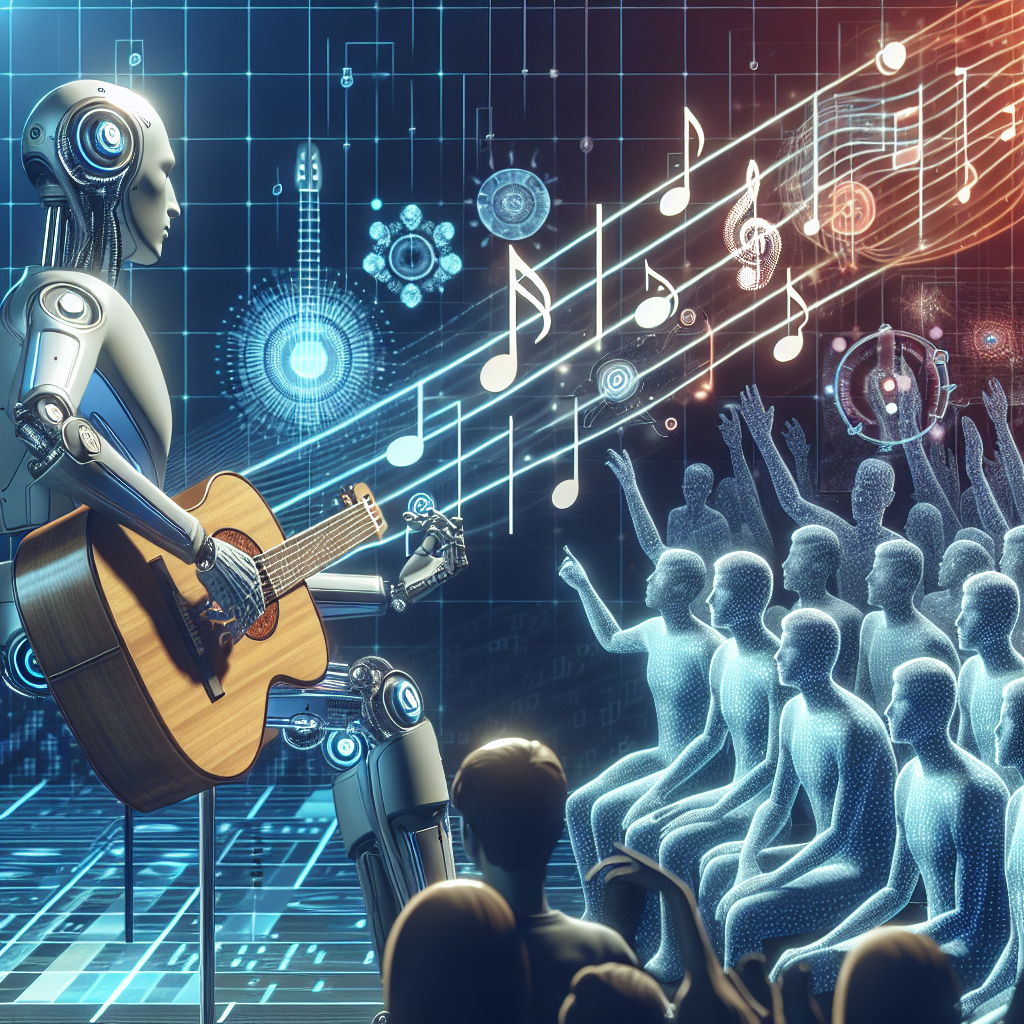Artificial Intelligence (AI) has had a profound impact on many aspects of our lives, from healthcare to transportation to entertainment. One area where AI is making waves is in the world of music. AI technology is redefining the relationship between artists and audiences in exciting new ways, from creating original compositions to personalizing the music listening experience.
AI in Music Composition
One of the most significant ways that AI is redefining the relationship between artists and audiences is in the realm of music composition. AI algorithms are now capable of generating original compositions that rival those created by human musicians. These AI-generated compositions can range from simple melodies to complex symphonies, and they are being used by musicians and composers to spark creativity and inspire new musical ideas.
One of the key advantages of using AI in music composition is the ability to generate a large volume of music quickly and efficiently. This can be particularly useful for artists who are looking to experiment with different musical styles or genres, or who are working on tight deadlines. AI can also be used to help artists overcome creative blocks by providing new and unexpected musical ideas.
AI-generated music is also being used to create personalized music experiences for listeners. Streaming services like Spotify and Pandora are using AI algorithms to tailor music recommendations to individual listeners based on their listening habits and preferences. This personalized approach to music discovery can help artists reach new audiences and connect with fans in a more meaningful way.
AI in Music Production
In addition to composition, AI is also being used in the production of music. AI algorithms can analyze audio recordings and automatically adjust levels, add effects, and even mix and master tracks. This can help artists and producers save time and resources in the recording studio, and ensure that their music sounds polished and professional.
AI is also being used in live performances to enhance the audience experience. Some artists are using AI algorithms to generate visuals and lighting effects that are synchronized with the music, creating a truly immersive and interactive concert experience. AI can also be used to analyze audience reactions in real-time, allowing artists to tailor their performances to the preferences of the crowd.
Challenges and Limitations
While AI technology has the potential to revolutionize the music industry, there are also challenges and limitations that need to be addressed. One of the main concerns is the potential loss of creativity and human expression in music. Some critics argue that AI-generated music lacks the emotional depth and authenticity of music created by human musicians, and that relying too heavily on AI could stifle artistic innovation.
Another challenge is the issue of copyright and ownership. Who owns the rights to music created by AI algorithms? Is it the programmer who created the algorithm, the artist who used the algorithm to generate the music, or the AI itself? These questions are still being debated in the music industry, and new laws and regulations may be needed to address these issues.
Despite these challenges, the use of AI in music is likely to continue to grow in the coming years. Artists and audiences alike are embracing AI technology as a powerful tool for creativity and innovation, and the possibilities for AI in music are truly limitless.
FAQs
Q: Can AI truly create music that is as good as music created by human musicians?
A: While AI-generated music can be impressive, many argue that it lacks the emotional depth and authenticity of music created by humans. However, AI technology is constantly improving, and it is likely that AI will become even more adept at creating music that is indistinguishable from music created by humans.
Q: Will AI replace human musicians in the music industry?
A: While AI technology has the potential to automate certain aspects of music production, it is unlikely that AI will completely replace human musicians. Music is a deeply personal and emotional art form, and many argue that the human touch is essential to creating truly great music.
Q: How can artists and audiences benefit from AI in music?
A: AI technology can help artists and audiences in a variety of ways, from sparking creativity and innovation to personalizing the music listening experience. Artists can use AI to generate new musical ideas and experiment with different styles, while audiences can enjoy personalized music recommendations and immersive concert experiences.
In conclusion, AI is redefining the relationship between artists and audiences in the world of music in exciting new ways. From generating original compositions to enhancing live performances, AI technology is revolutionizing the music industry and opening up new possibilities for creativity and innovation. While there are challenges and limitations to be addressed, the future of AI in music looks bright and full of potential.

